- Home
- Thomas H. Cook
Red Leaves Page 4
Red Leaves Read online
Page 4
Framing these smiling, bucolic scenes never failed to relax and reassure me. But a frame is just a frame, and the life it holds is frozen, static, beyond the reach of future events. Real life is another matter.
The phone rang.
It was Meredith. "Eric, come home," she told me.
"Why?" I asked.
"Because," she said, "they're here."
FIVE
There were two of them, both dressed in dark suits, a tall, hawk-faced man named Kraus, and another, shorter and rounder, whose name was Peak. They were sitting in the living room when I arrived, and both smiled pleasantly as they introduced themselves.
"I understand," Kraus began, "that Mr. Giordano called you this morning?"
"Yes."
We were all standing, Kraus's dark deep-set eyes leveled directly upon me; Peak a little to my left, seemed more interested, or so it seemed, in a family portrait I'd taken four years before, the three of us posed before Keith's sixth-grade science project, a plaster of paris sculpture of the body's internal organs, red heart, blue lungs, brown liver, and so on.
"Amy is still missing," Kraus told me.
"I'm sorry to hear that," I said.
Peak abruptly turned from the photograph. "Interested in anatomy, is he?" he asked.
"Anatomy?"
"It looks like a science project," Peak said. "In the picture here. Organs?"
"Yes."
"So, he's interested in that, your son?"
I shook my head. "Not really, no."
Kraus's smile was thin, anemic, forced rather than felt. "So why did he do a project like that?" he asked
"Because it was easy for him," I answered.
"Easy?"
"Other kids had much more elaborate projects," I explained.
"He's not a great student then?"
"No."
"How would you describe him?" Kraus asked.
"Keith? I don't know. He's a teenage boy. A little odd, maybe."
"In what way is he odd?"
"Well, not odd exactly," I added quickly. "Quiet."
Kraus looked at Peak and gave a faint nod, which brought the smaller man suddenly back into the game.
"No reason to be alarmed," Peak said.
"I'm not alarmed," I told him.
The two men exchanged glances.
"I suppose you'd like to talk to Keith," I added, careful to keep my voice firm and confident, a father who has not the slightest doubt that he knows his son thoroughly. I wanted them to believe that nothing could have escaped my notice—that I had searched Keith's closets and the drawers of his bedroom bureau, smelled his breath when he came in at night, routinely dragged him to the family physician for drug tests; that I monitored the books he read, the music he listened to, the sites he visited on the Internet; that I had researched the family histories of the friends he hung around with; that only God could possibly know more than I did about my son.
"Yes, we would," Kraus said.
"I'll get him."
"He's not here," Meredith said quickly.
I looked at her, puzzled. "Where is he?"
"He went for a walk."
Before I could say anything further, Kraus said, "Where does he walk?"
For some reason, Meredith merely repeated the question. "Where does he walk?"
Peak looked out the large window that fronted the thickly forested grounds behind the house. "Back there, that's conservation land, right? No houses. No roads."
"Yes, it's all conservation land," I told him. "No one can ever build back there or—"
"So it's very isolated," Peak said. He turned back to Meredith. "Is that where Keith takes these walks, in the woods back there?"
Suddenly the words "these walks" took on an ominous quality and I imagined Keith as I knew Peak and Kraus imagined him, a figure crouching in the undergrowth, desperately digging in the moist ground, burying something that linked him to Amy Giordano, a bloodstained lock of hair.
"No, he doesn't walk back there," I said quickly. "You can't. The undergrowth is too thick and there are no trails."
Kraus's eyes shifted to my wife, fixing on her an unsettling intensity. "So where is he?"
"The baseball field," Meredith answered. "When he goes for a walk, he usually goes down to the baseball field."
"There and back, you mean?" Peak asked.
Meredith nodded faintly, and I expected that to be the end of it, but Kraus said, "When does he go for these walks? In the morning?"
"No," Meredith answered. "Usually in the afternoon. Or after dinner."
"Not in the morning then," Kraus said. "Except this morning, right?"
Again, Meredith nodded delicately, like someone reluctant to give assent, but unable to withhold it.
"I noticed a bike at the end of the walkway," Peak said. "Is that Keith's?"
"Yes," I said. "He uses it to make deliveries for me after school."
"Where does he make these deliveries?" Kraus asked.
"Anywhere in biking distance from my shop," I said.
"And that would be where, Mr. Moore?" Peak asked.
"My shop is in Dalton Square," I said.
"What does he deliver?" Kraus asked.
"Pictures," I said. "Of families, mostly."
"Family photographs," Peak said with a slight smile. "Got a few of those myself."
Kraus shifted his weight like a fighter preparing to deliver the next blow. "How long has he been delivering these pictures?"
Again, there was a sinister, oddly accusatory, use of "these," but I was no longer sure if the accusation was intended to incriminate Keith or if Kraus had now extended his accusatory tone to me.
"A couple of years," I answered. "There's no law against that, is there?"
"What?" Peak asked with a slight chuckle. "Well, of course not, Mr. Moore." He glanced toward Kraus then back to me. "Why would you think that?"
Before I could answer, Meredith cut in. "I'll go get him if you want me to."
Peak looked at his watch. "No, we'll do it. The ball field's on the way back to the station, we can—"
"No!" I blurted. "Let me bring him here."
Both of them looked at me, stonily silent, waiting.
"It would scare him," I explained.
"What would scare him?" Kraus asked.
"You know, two men he's never seen."
"He's a scared type of kid, your son?" Peak asked.
It had never occurred to me before, but now it struck me that in fact Keith was a "scared type of kid." He was scared he'd disappointed Meredith by doing poorly in school and scared he'd disappointed me by never having had a girlfriend. He was scared he wouldn't get into a good college, scared that he'd never find what he wanted to do in life or that he'd fail at the thing he did find. He had no friends, and I supposed that that scared him, too. Add them up, one by one, and it seemed that he was scared of almost everything, lived in a subtle crouch. And yet, I said, "No, I don't think Keith's scared of anything in particular. But two men—police—that would scare anybody, wouldn't it?"
Again, Kraus and Peak glanced at each other, then Peak said. "All right, Mr. Moore, you can go get him." He regarded me distantly. "No reason," he repeated, "to be alarmed."
I expected to find Keith on Vernon Road, which fronts our house, then shoots directly to town, where it becomes Main Street, then winds another mile to the ball field, a distance of little more than three miles. But instead, I spotted him standing idly at the little playground near the town square, a place where people routinely bring small children to scrabble in the sandbox or race around the wooden castle. He was slumped against the playground's wrought iron fence, his shoulder pressed into it, rhythmically kicking at the ground with the toe of his shoe.
He didn't see me when I pulled up to the curb a few yards from the playground, so that by the time I'd gotten out of the car and walked across the lawn, it was too late for him to hide the cigarette.
"I didn't know you smoked," I said, as I came up to
him.
He whirled around, clearly startled, his gaze first on me, then darting nervously about the grounds, as if in fear of snipers.
I nodded toward the pack of Marlboros that winked from his shirt pocket. "When did you start?"
He took a long, defiant draw on the cigarette, his body now assuming a sullen teenage swagger. "I don't do it all the time."
"So, in this case, what's the occasion?"
He shrugged. "I guess I'm jumpy." He let the cigarette drop from his fingers, lifted the collar of his parka, and in that instant he seemed to retreat to an earlier time, taking on the sullen hunch of a fifties teenager, a rebel without a cause.
"This thing with Amy," I said. "It makes everybody jumpy."
"Yeah, sure." He ground the cigarette into the dirt with the toe of his shoe, snatched the pack from his shirt pocket, thumped out another and lit it.
"It's okay to be a little nervous," I told him.
He waved out the match and laughed. "Oh yeah?"
"I would be," I said.
"But there's a difference, Dad." He took a long draw on the cigarette and released a column of smoke that narrowly missed my face. "You weren't at her fucking house."
He'd never used that kind of language in front of me before, but it didn't seem the right time to quibble about matters that now struck me as infinitely small. The last thing he needed, I decided, was a scolding.
"I have to take you back home," I told him.
This appeared to disturb him more than my having caught him with a cigarette.
"I want to hang around here for a while," he said.
"No, you have to come with me," I insisted. "There are a couple of policemen who want to talk to you."
His face stiffened and an icy fear came into his eyes. "They think I did it, right?"
"Did what?"
"You know, whatever happened to Amy."
"There's no evidence that anything happened to Amy."
"Yeah, but something did," Keith said. "Something did, or she wouldn't be missing."
"Keith," I said. "I want you to be very careful when you talk to these cops. Think before you answer. And be sure you don't lie about anything."
"Why would I lie about something?" Keith asked.
"Just don't, that's what I'm telling you. Because it's a red flag."
He dropped the cigarette and crushed it with an odd brutality, as if he were angrily stomping the life out of a small defenseless creature. "I didn't hurt Amy."
"I know that."
"I may be bad, but I didn't hurt Amy."
"You're not bad, Keith. Smoking cigarettes doesn't make you bad."
A dry scoffing laugh broke from him, one whose exact meaning I couldn't read. "Yeah, right, Dad" was all he said.
Meredith had served Kraus and Peak coffee and cookies by the time I returned with Keith, but I couldn't imagine that she'd been able to do it in a way that actually made them feel welcome.
"This is Keith," I told them as I ushered my son into the living room.
Both detectives rose and smiled and shook Keiths hand. Then they sat down on the green sofa, Keith opposite them in a wooden rocker.
"You don't have to stay," Peak said to Meredith. He looked at me. "You, either, Mr. Moore. This is just a friendly chat." He smiled. "If it were any more serious than that, we'd be reading Keith here his rights." He glanced at Keith and the smile broadened. "Just like they do on TV, right?"
Keith nodded slightly.
"I'd rather stay with my son," I said.
Meredith opted to busy herself in her small office at the rear of the house, however, and so it was just three men and a teenage boy in the living room when the questioning began.
Then, almost immediately, it was over, with little more established than what I'd already told Vince Giordano, that Keith had not left Amy alone in her house, that he'd gotten home a little before midnight. The only new facts were that my son had walked from Amy's house into the village, then along its back streets, and finally over to the ball field where he'd sat alone on the bleachers for a time, then gotten up and walked home. At no time during this late-night sojourn had he talked to anyone. He'd called home at just before ten, he said. I'd answered the phone and he'd told me that he intended to stay out a little later than usual. I'd asked if he needed a ride, and he'd assured me that he didn't. At that point, he and I had agreed that he was to be home before midnight. Which, he told Kraus and Peak, he had been. The exact time, he said, was seven minutes before twelve. He knew this because he'd glanced at the large grandfather clock in the front foyer before going upstairs to his room.
As I listened to Keith's answers, I began to relax. Nothing Keith said surprised me and nothing contradicted my own understanding of his movements and activities that night.
"So," Kraus said, "after you hung around the ball field for a while, you went straight home?"
"Yes."
"The ball field is only a few blocks from the Giordanos' house, isn't it?"
"Yes."
"Did you pass their house again?"
"No."
"You went straight home," Peak said, "Like DO NOT PASS GO?"
Keith chuckled, but mirthlessly, a laugh I heard as a mocking response to Peak's reference.
And so it didn't surprise me that Peak's attitude immediately hardened. "How'd you get home?"
"I walked."
Peak's eyes were very still. "You walked?"
"Yes," Keith answered.
"You don't have a car?" Kraus asked.
"No," Keith said. "I couldn't drive anyway. I'm fifteen."
"You have a learner's permit?" Peak asked.
"Yes."
"How did you get to Amy's house?"
"My uncle drove me."
Kraus took a notebook from his jacket pocket. "What's your uncle's name?"
Keith looked at me as if asking if he should answer.
"His name is Warren," I said. "Warren Moore."
"Where does he live?" Kraus asked.
"1473 Barrow Street."
"Near the school," Peak said. "The elementary school."
"Yes," I said. "Right next door, actually."
"Where does he work?"
"He works on his own. He paints houses."
Kraus jotted something in his notebook, then returned his attention to Keith. "So your uncle drove you to Amy's house, and then, after Mr. and Mrs. Giordano came back home, you walked to town—have I got that right?"
"Yes."
"And then you went to the ballfield, and after that you walked home?"
"Yes."
"All the way from the center of town?"
Keith nodded.
"You didn't get a ride?"
Kraus asked.
Keith shook his head. "No."
"But you could have called home, right, gotten a lift?"
"Sure."
"Why didn't you?" Peak asked.
"I just didn't," Keith answered. "I don't mind walking."
"Even that late?" Kraus asked.
"No," Keith answered. He thrust his head backward and ran his fingers through the tangles of his hair. "I like the night," he said.
SIX
I like the night.
Odd how sinister a simple remark can sound, the questions it can suddenly raise.
In what way, I wondered, did my son like the night? Did he like it because it brought him a certain peace? Or did he like it simply because it meant the end of another tedious day at school or at home? Or did he like it because it shielded him from view, because, clothed in its darkness, he could skulk about unnoticed, hidden beneath the hood of the blue parka? Did he like it like a saint in search of solitude or like a stalker in search of cover?
It didn't matter really. What mattered was that my son had gotten through it, so that it might end here, a hope I fully embraced as I walked the two detectives to their car.
Kraus got in behind the wheel, but Peak remained standing at the passenger door. He wore a dark green sui
t, and in the slant of bright sunlight that washed over him, he looked like a thick shrub.
"Mr. Moore," he said, "what is your experience with your son?"
"Experience?" I asked.
"In your exchanges, I mean. Day to day."
"I still don't quite..."
"Has he been truthful?" Peak asked.
Suddenly, I thought of the two beams of light sweeping across the ragged undergrowth and recalled that only moments before, Keith had said that he had not been driven home the night before.Was that true? I wondered now. But despite that jarring vision and its accompanying doubt, I said, "As far as I know, he's always told me the truth."
Peak watched me closely. "About everything?"
"Well, I'm sure he's told a few little lies to me over the years," I said. "He's a kid, that's all. A little enclosed, but—" The look in Peak's eyes stopped me in my tracks. "But normal," I added quickly. "A teenager, that's all."
"Yes, of course," Peak said.
He tried to appear perfectly satisfied by my answer, but I knew he wasn't. "Well, thank you," he said. "We'll call if we need anything further."
With that he settled into the passenger seat and the car pulled away.
Meredith was washing the detectives' coffee cups when I returned to the house, her movements strangely frantic, almost violent, like someone trying to erase an incriminating stain.
"Well, that was easier than I expected," I told her.
"They'll be back," Meredith said.
Her certainty surprised me. "Why are you so sure of that?"
She had been facing the sink, her back to me, but now she whirled around. "Because something always comes up, Eric." There was a fire in her eyes, a sense that she was talking about more than Keith's connection, whatever it might be, to Amy Giordano's disappearance.
"What do you mean?"
"To spoil things"—her expression took on an indecipherable combination of anger and sadness, like someone mourning a death by freak accident—"when things were so perfect."
"Nothing is spoiled," I said in a gentle, comforting tone, pleased that our life had seemed so perfect to her until now. "Meredith, we don't even know what happened to Amy yet."

 The Interrogation
The Interrogation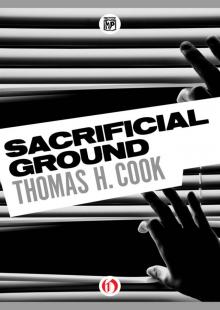 Sacrificial Ground
Sacrificial Ground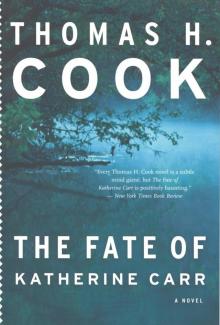 The Fate of Katherine Carr
The Fate of Katherine Carr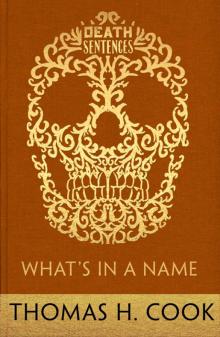 What's In A Name
What's In A Name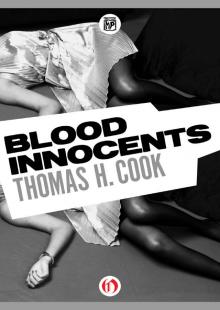 Blood Innocents
Blood Innocents Peril
Peril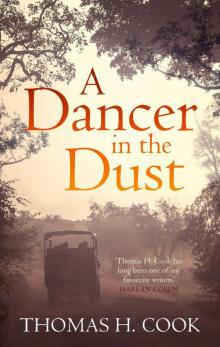 A Dancer In the Dust
A Dancer In the Dust Breakheart Hill
Breakheart Hill The Chatham School Affair
The Chatham School Affair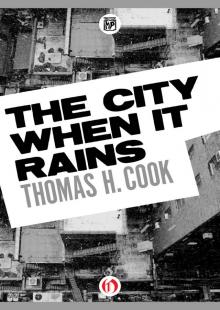 The City When It Rains
The City When It Rains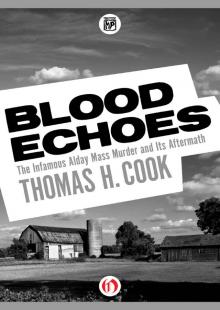 Blood Echoes
Blood Echoes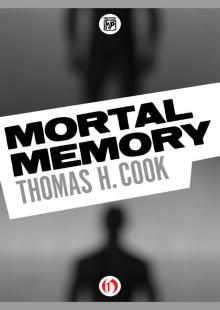 Mortal Memory
Mortal Memory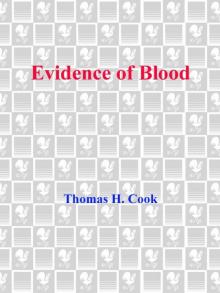 Evidence of Blood
Evidence of Blood Into the Web
Into the Web The Crime of Julian Wells
The Crime of Julian Wells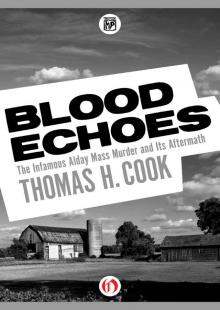 Blood Echoes: The Infamous Alday Mass Murder and Its Aftermath
Blood Echoes: The Infamous Alday Mass Murder and Its Aftermath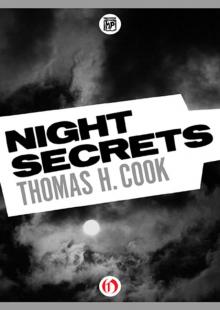 Night Secrets
Night Secrets Places in the Dark
Places in the Dark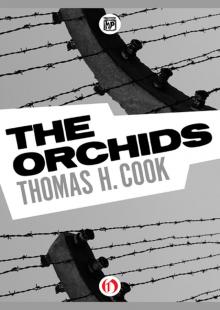 The Orchids
The Orchids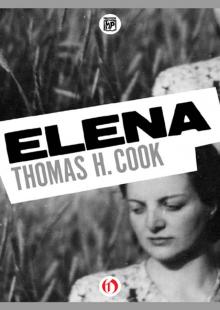 Elena
Elena Streets of Fire
Streets of Fire Instruments of Night
Instruments of Night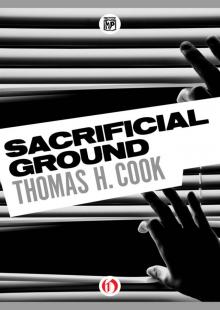 Sacrificial Ground fc-1
Sacrificial Ground fc-1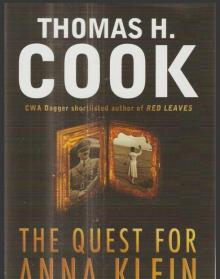 The Quest for Anna Klein
The Quest for Anna Klein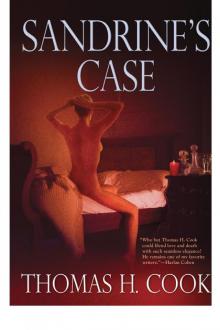 Sandrine's Case
Sandrine's Case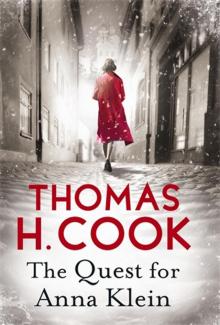 Quest for Anna Klein, The
Quest for Anna Klein, The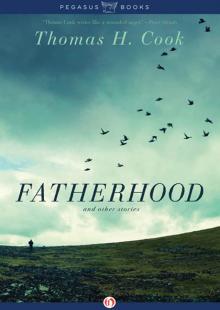 Fatherhood
Fatherhood Flesh and Blood
Flesh and Blood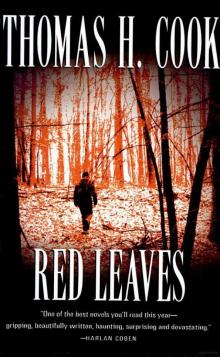 Red Leaves
Red Leaves